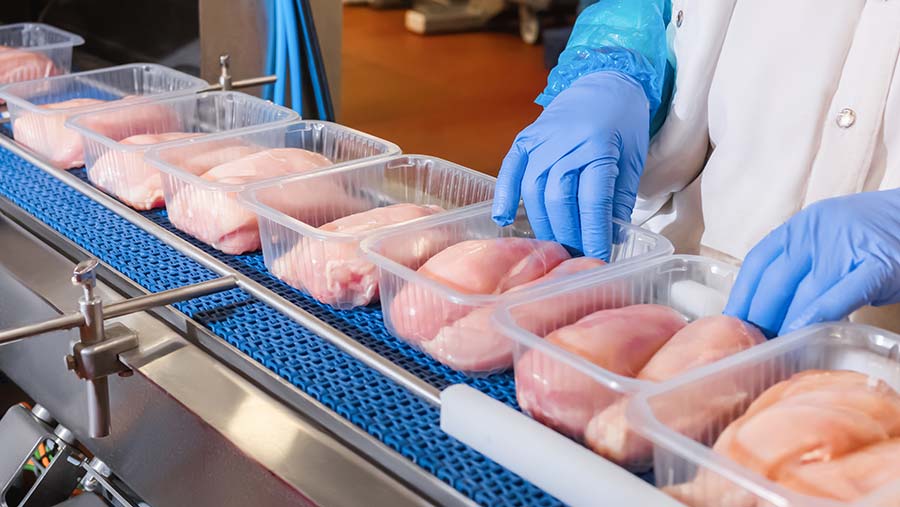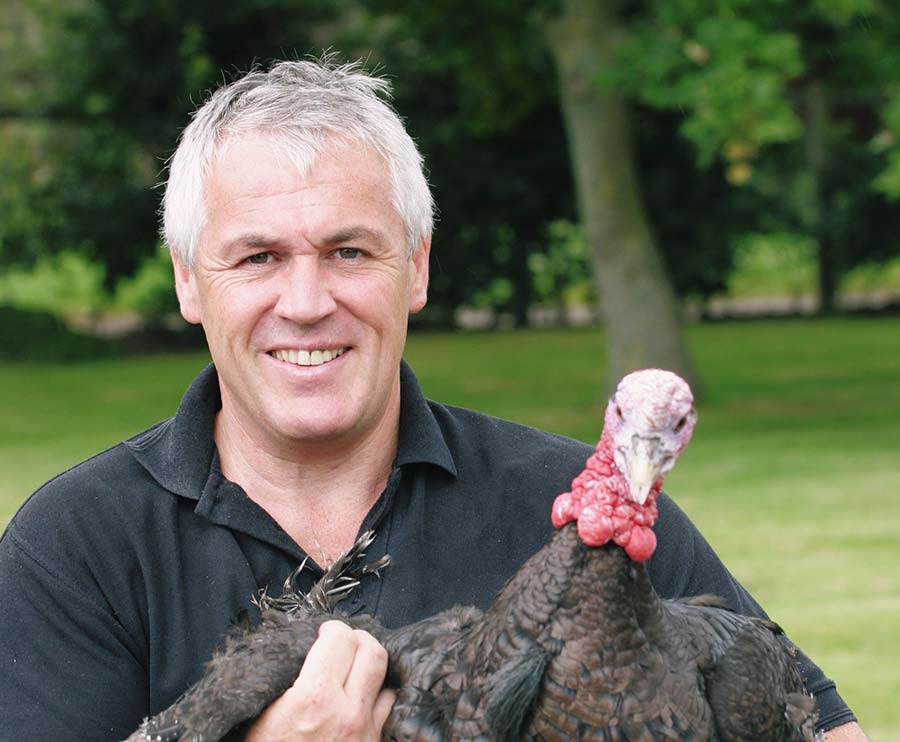Poultry industry slashes production as labour crisis worsens
 © Adobe Stock
© Adobe Stock The UK poultry sector has been forced to cut production levels by up to 20% amid worsening post-Brexit labour shortages.
The British Poultry Council (BPC) said its members were typically cutting weekly chicken output by 5-10%, year-round turkey supply by 10% and seasonal bird production by 20%.
Across the whole poultry sector about 16% of all posts are vacant, according to BPC estimates.
See also: Driver shortage hits feed deliveries and grain pick-up
A spokeswoman for the organisation said processors were being forced to reduce the range of products offered to maintain mainstream poultry cuts.
However, she suggested that if the situation continued, even the supply of staple poultry cuts could be hit.
Although Covid-19 restrictions have caused some difficulties with existing staff, the BPC blamed Brexit as the underlying cause of the downturn in labour supply.
The spokeswoman explained that post-Brexit immigration policy meant the UK no longer had access to skilled poultry workers from the EU.
BPC chief executive Richard Griffiths was also unequivocal.
“The labour crisis is a Brexit issue,” he said. “The British poultry meat industry is reporting an alarming number of gaps that only continue to grow due to a government that continually acts against the best interests of British food producers.”
Limiting non-UK labour supply and deeming food producers as “low-skilled” had jeopardised production, he said.
Job vacancies
On Tuesday (24 August), the Association of Independent Meat Suppliers told the BBC that abattoirs, butchers and meat processors were set to employ prisoners and former inmates to help plug labour shortages.
The industry body said there were about 14,000 vacancies in the meat processing industry.
The BPC warned that the UK faced being hit with a double whammy of food inflation and a reliance on more imported food produced to lower standards.
Mr Griffiths said the government should relax immigration rules or accept regulatory alignment with the EU to put the country on the road to recovery.
The BPC also made the following recommendations to government:
- Include poultry meat supply chain workers on the “skilled worker” and “shortage occupation” lists and reduce unnecessary thresholds on salaries and skills.
- Extend the Seasonal Agricultural Workers Scheme to the poultry meat sector (agriculture and processing), to protect seasonal demand for poultry meat and Christmas turkeys.
- Ensure vital food production was at the core of skills and education programmes such as the Lifetime Skills Guarantee and the Apprenticeship Levy to improve the appeal of the sector and build a UK workforce.
- Urgently conduct the first food security survey as required of the government under the new Agriculture Bill.
Case study: Paul Kelly, Kelly Turkeys, Essex
Like other poultry flock owners, Essex-based turkey producer Paul Kelly said that since Brexit he had been forced to contract his business after decades of consistent growth.
“We haven’t grown in the past few years because of constraints in labour supply issues. It is shocking because the demand is there and growing,” Mr Kelly said.
With the help of EU labour the sector had been able to meet that growing demand and the sector had got retailers to support British turkey to almost 100% of supply, he said.
But now it looks as though British poultry production will be set back 30 years to when 30-40% of supply was through imports.

Paul Kelly says he will cap turkey output because of the labour shortage © Barry Wyles
Mr Kelly said big French factories were already rubbing their hands with glee at the UK sector’s decline.
On his farm, Mr Kelly has staff shortfall of about 15% and needs another 20 seasonal workers to meet Christmas demand.
Despite months of recruiting in the UK he has received just three applications and has now decided to cap output at 60,000 birds this year.
This Christmas will definitely see a shortage of British turkey. There may be a more widespread shortage because it will be difficult for EU producers to scale up in time to fill the gap in the market, he suggested.
It was a terribly sad situation, he said, because it was purely political: the government couldn’t admit its Brexit policy was failing and couldn’t be seen to let in migrant workers.
